Introduction
In a world constantly vying for our attention and energy, the ability to say "no" and set boundaries is not just a skill—it’s an essential part of maintaining mental and emotional well-being. This article explores the power of assertiveness, the challenges that come with declining requests, and how mastering these skills can lead to personal growth and mental wellness.
Understanding the Power of Saying No
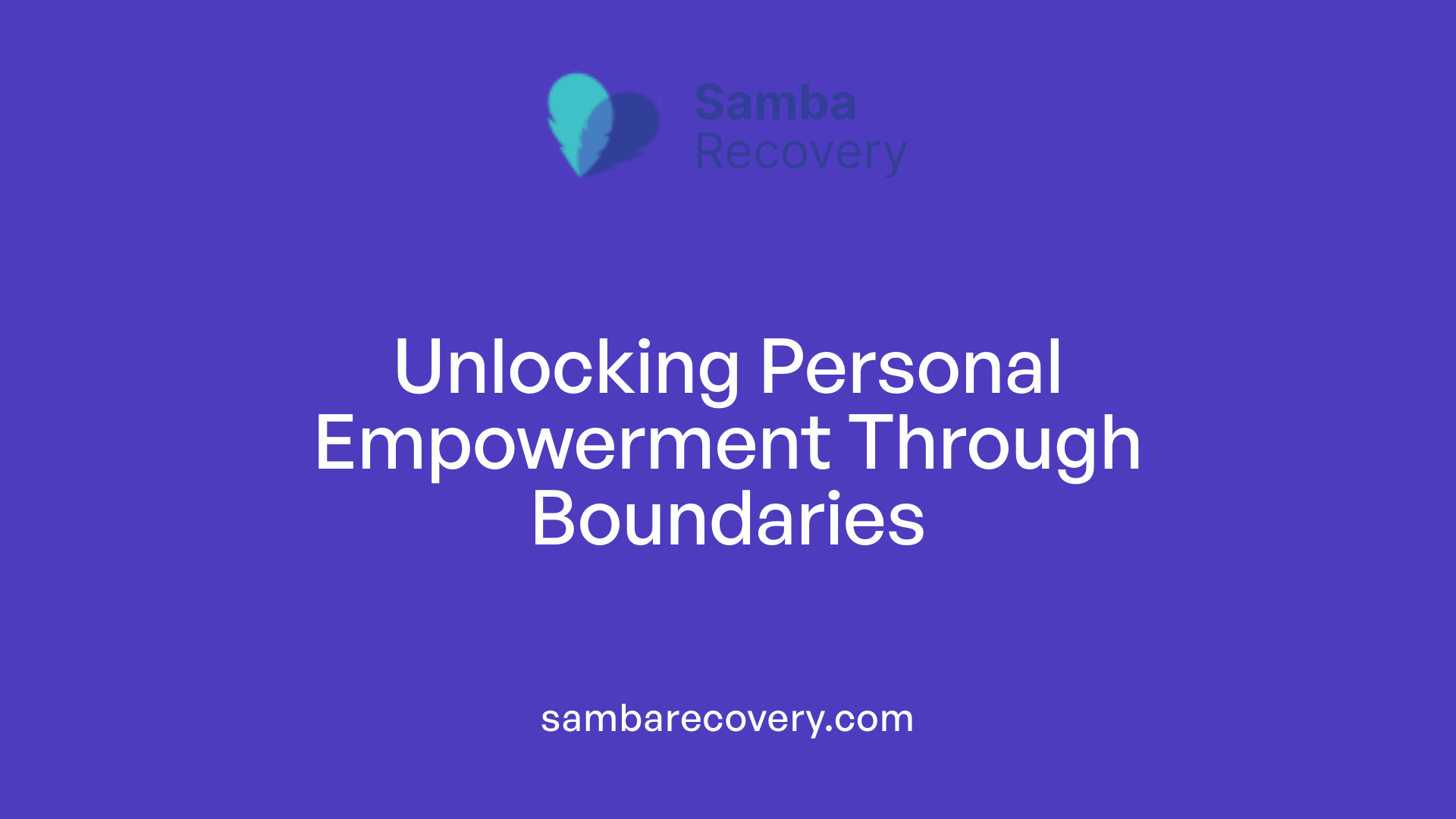
What is the power of saying no and setting boundaries?
The power of saying no and setting boundaries lies in their ability to prioritize self-care and maintain a balanced life. This practice leads to better mental and emotional well-being. By clearly communicating your limits, you help others understand your needs, fostering healthier relationships.
Overcoming common emotional hurdles such as guilt and the desire for approval is essential for asserting boundaries. Constantly saying yes can lead to burnout, stress, and resentment. Instead, understanding your values and priorities empowers you to make intentional choices that align with your goals.
Benefits of Saying No
Developing the skill of saying no can enhance self-esteem and help individuals avoid becoming overwhelmed. By practicing positive affirmations and creative self-care activities, individuals build the confidence needed to decline requests that do not serve them.
Here are some benefits of mastering this vital skill:
| Benefit | Description | Effect on Relationships |
|---|---|---|
| Improved Self-Esteem | Assertiveness reinforces self-worth and personal boundaries. | Builds respect from others |
| Enhanced Focus | Allows individuals to prioritize commitments effectively. | Reduces conflict and frustration |
| Reduced Stress | Minimizes feelings of obligation and overwhelm. | Promotes a healthy, supportive atmosphere |
Prioritizing Self-Care
Saying no is a crucial aspect of self-care, contributing to mental health stability. By reclaiming your autonomy, you can conserve energy and focus on what truly matters. For instance, declining social media interactions or excessive commitments helps to maintain a balanced mental state.
Enhancing Relationships
While it may feel uncomfortable at first, saying no respectfully signals to others that your time and energy are valuable. Using techniques like the ‘sandwich method’—placing a refusal between two positive statements—can soften the delivery without compromising your decision.
By understanding and implementing these strategies, individuals cultivate healthier dynamics in their relationships. Maintaining clear communication ensures that others recognize your boundaries, ultimately enriching connections and fostering mutual respect.
The Emotional and Social Challenges of Saying No
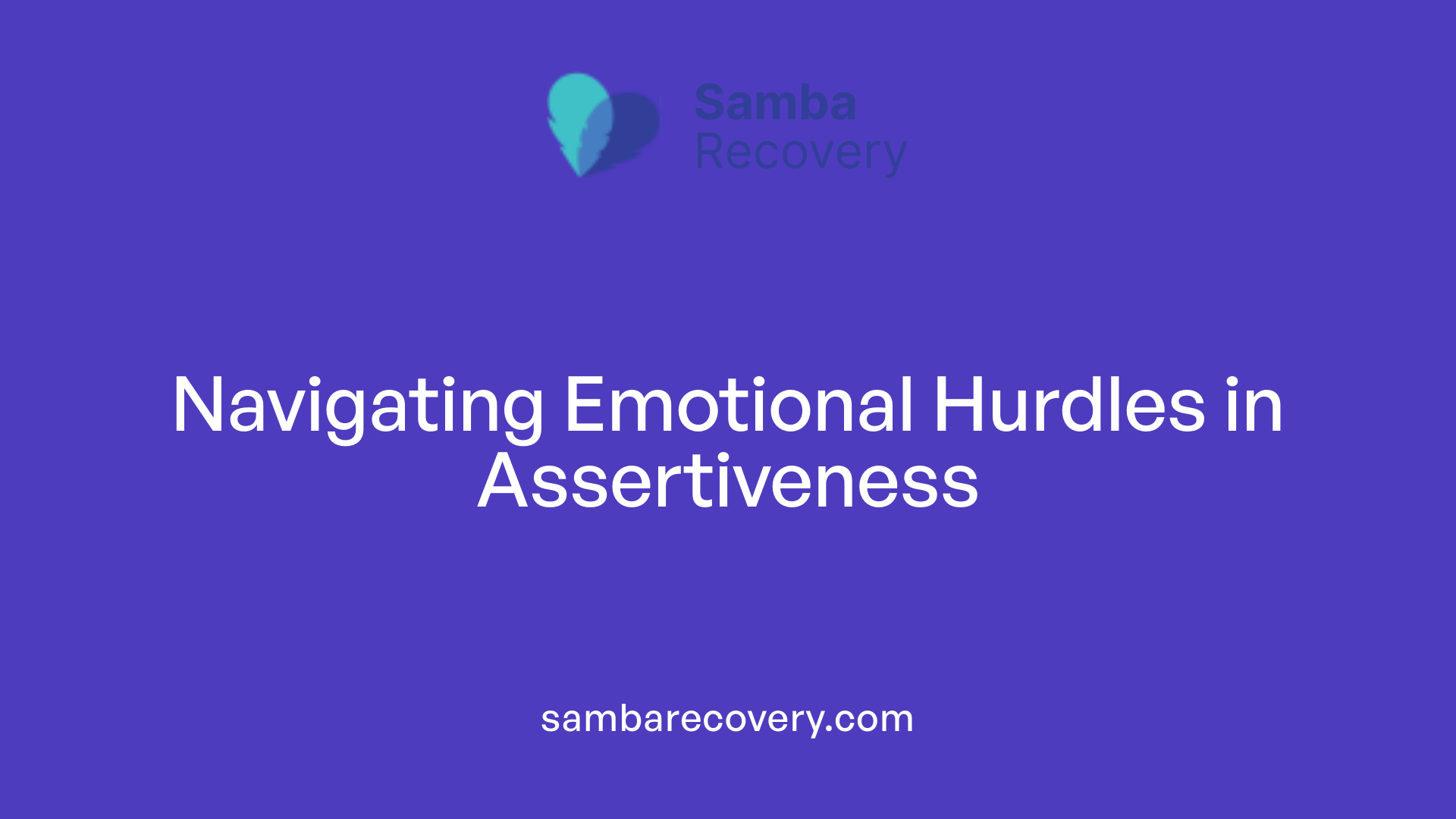
Why Do Some People Struggle to Say No?
Many individuals face significant challenges when it comes to saying no, often rooted in learned behaviors from childhood. Those raised in environments that emphasize obedience and compliance learn to prioritize the desires of authority figures, which can lead to feelings of guilt when they decline requests.
Emotional ties further complicate this issue, particularly in relationships with family and friends, where the stakes feel much higher. Fear of conflict or disappointing loved ones can amplify anxiety each time one considers refusing a request, creating stress that may lead to burnout. This also links back to experiences in early life—if a person grew up in an environment where their feelings were neglected, asserting personal needs can become incredibly difficult.
Overcoming Emotional Complications
To alleviate these emotional complications, it becomes essential to develop the assertiveness required to say no. Recognizing the impact of personal boundaries on mental health is critical. Every time someone acquiesces to avoid discomfort, they might be jeopardizing their own well-being and filling their life with commitments that drain energy and time.
Instead, reinforcing the value of self-care and re-evaluating personal priorities can catalyze a positive change. This requires both courage and practice but is necessary for fostering healthier relationships and clearer self-identity.
Persisting with Refusal
Persisting with a refusal can also be challenging due to social pressures that label saying no as selfish or uncaring. However, learning to say no effectively can empower individuals, enabling them to focus on their own needs without guilt. Techniques like using ‘I’ statements or the ‘sandwich method’ can ease the discomfort of rejection and help maintain respect in relationships. By reinforcing boundaries and valuing self-assertion, individuals can cultivate healthier interactions and take charge of their decisions, ultimately leading to improved mental health and life satisfaction.
Psychological Benefits of Mastering the Art of Saying No
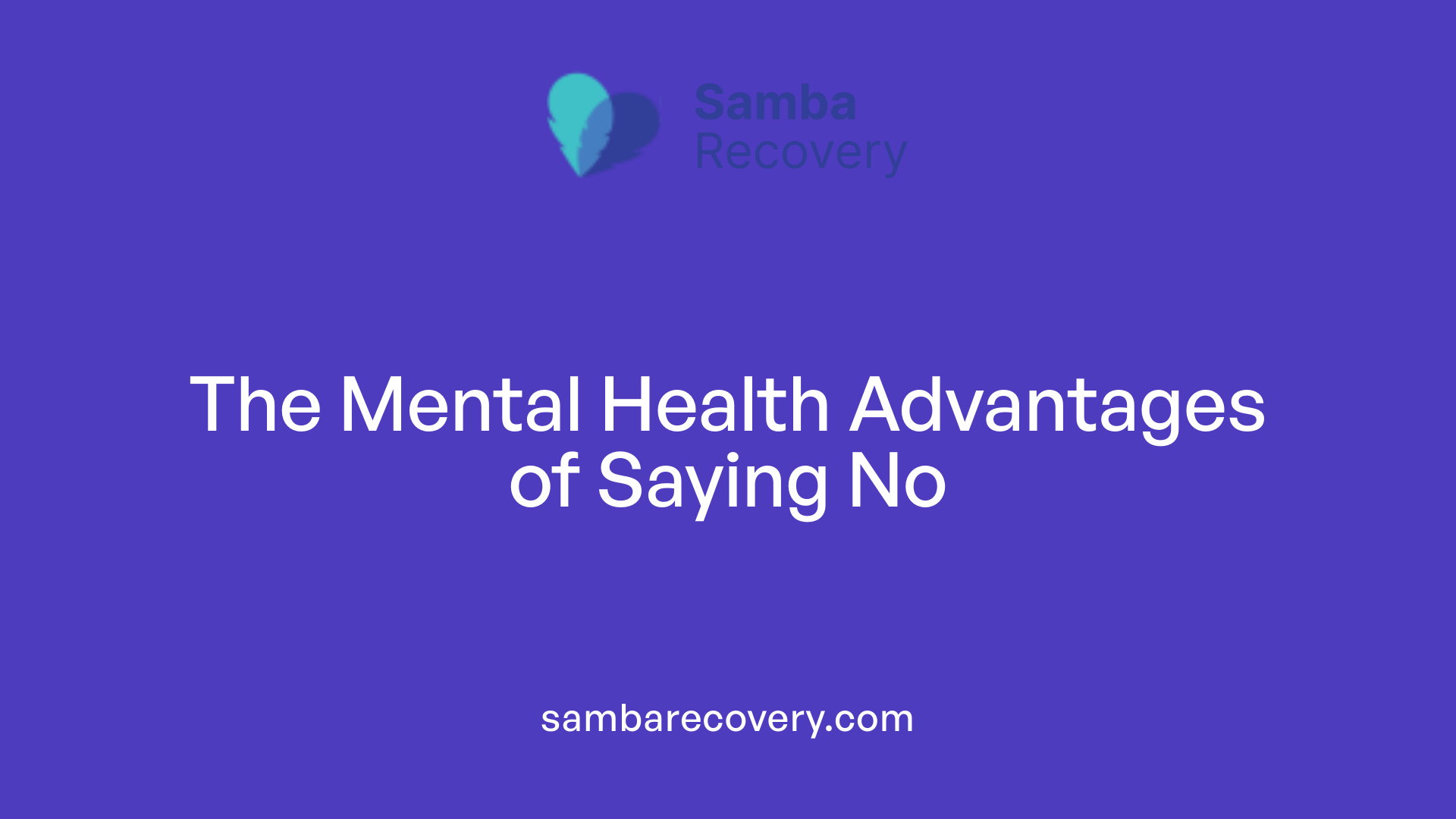
What are the psychological benefits of learning to say no?
Learning to say no has several psychological benefits that contribute to overall well-being. One of the most significant advantages is its ability to boost self-esteem. When individuals assertively communicate their boundaries, they reinforce their worth and prioritize their own needs, fostering a sense of empowerment.
Additionally, framing refusal as self-care is pivotal. By recognizing that saying no is not an act of selfishness but rather a necessary measure for maintaining one’s mental health, individuals can experience reduced feelings of guilt and helplessness. This perspective shift encourages a healthier attitude toward self-advocacy and boundary-setting.
Moreover, enhancing emotional intelligence plays a crucial role in assertiveness. As individuals become more skilled in discerning when to say no, they also cultivate empathy and self-awareness, which are vital components of emotional intelligence. This growth often leads to improved relationships and job performance, creating a positive feedback loop of mental wellness and effective leadership.
Overall, the ability to refuse requests empowers decision-making and supports individuals in prioritizing their mental health and personal objectives, cementing the importance of learning to say no.
Making Assertiveness Work for You in the Workplace
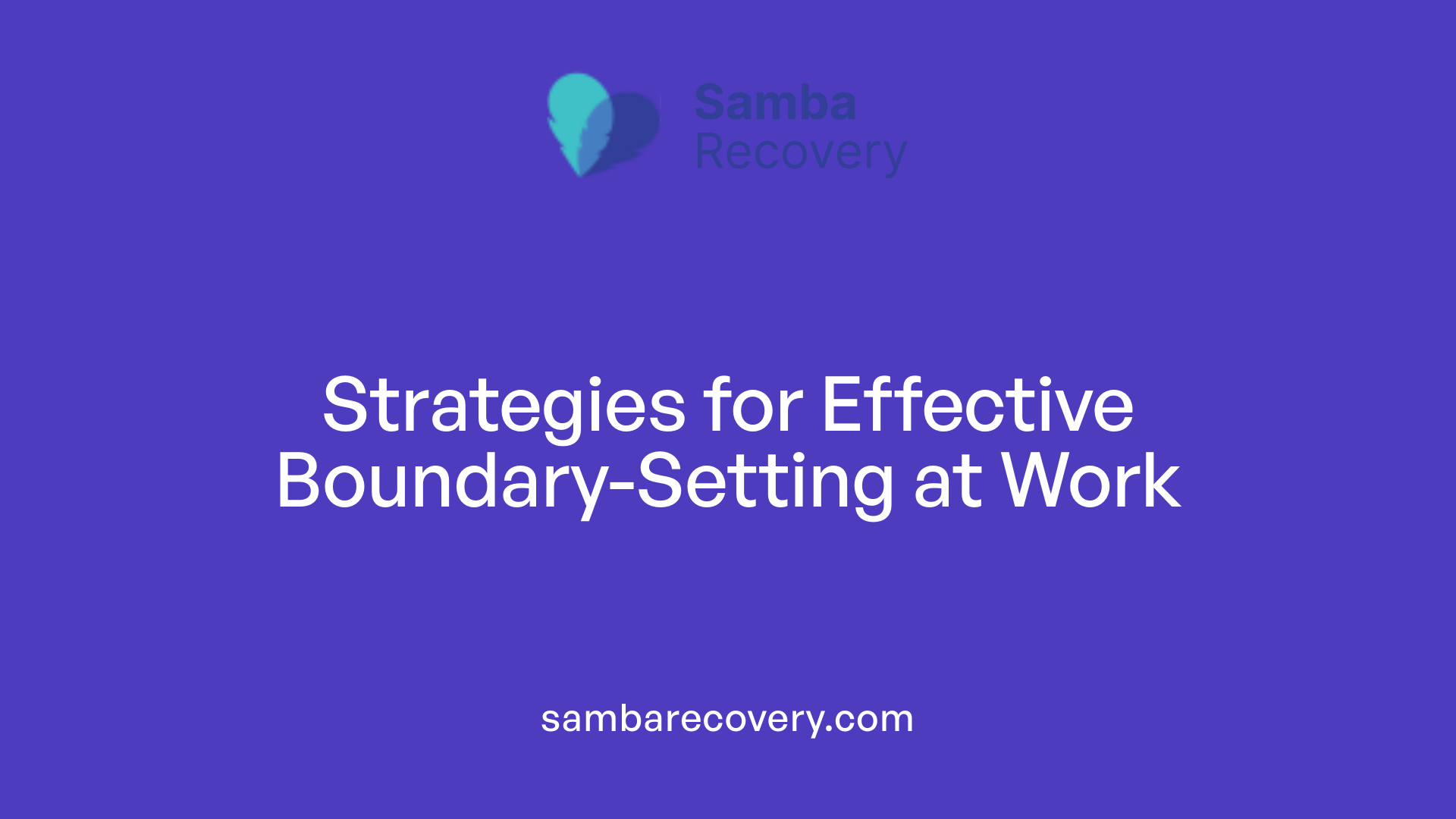
Why is it important to say no at work?
Saying no at work is essential for several reasons. It helps manage workload effectively, thereby preventing burnout. By being clear about your limits, you can focus on what truly matters, enhancing your productivity and effectiveness.
Set boundaries not just for your sake but for cultivating mutual respect within professional relationships. When colleagues see that you value your time and energy, they are more likely to reciprocate, fostering a positive team environment.
Overcoming psychological barriers like fear of conflict or guilt makes assertiveness possible. Acknowledging that saying no aligns with personal values is vital. Using techniques such as ‘I’ statements or the sandwich method enables you to refuse requests gracefully, preserving relationships while asserting your needs.
Moreover, effective boundary-setting enhances mental well-being and helps maintain focus on professional goals. As noted by Dr. Greiler, saying no can contribute to stability in mental health and a balanced workload.
In summary, prioritizing your well-being through assertive communication allows you to perform better, build respect, and maintain a healthy work-life balance, all of which are critical for personal and professional success.
| Strategy | Description | Benefits |
|---|---|---|
| Use "I" Statements | Promotes ownership of your decisions and reduces confrontation. | Foster clarity in communication |
| Sandwich Method | Place negative response between two positives for gentleness. | Maintains rapport while setting boundaries |
| Take Time to Respond | Avoids rash decisions, allowing for thoughtful refusal. | Encourages more respectful dialogues |
| Suggest Alternatives | Offers solutions while denying requests. | Preserves relationships |
Breaking Free from People-Pleasing Behaviors
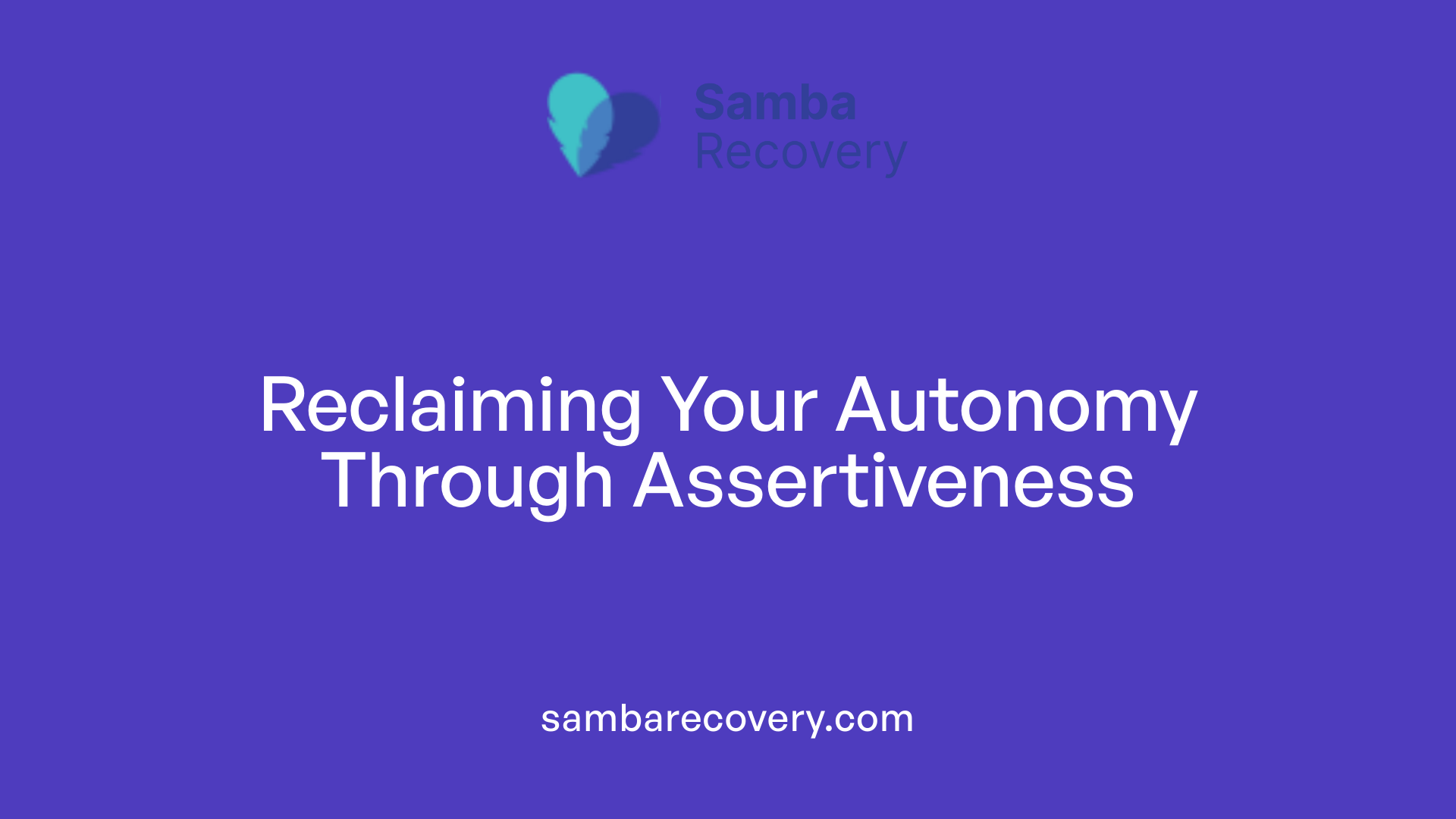
How can assertiveness help in overcoming people-pleasing behavior?
Assertiveness plays a crucial role in overcoming people-pleasing behavior by helping individuals reclaim their autonomy and prioritize their own needs. This training enables clear communication of personal boundaries, which is essential for resisting the societal pressures that often encourage subservience over self-care.
When individuals learn to say no, they begin to reframe this action as an expression of self-respect rather than a selfish refusal. Using techniques such as "I" statements allows them to own their feelings and decisions. For instance, saying "I need to focus on my own tasks right now" is a respectful way to decline a request, ensuring that they communicate their boundaries clearly without guilt.
Furthermore, practicing self-compassion can bolster one’s ability to assert these boundaries confidently. It encourages a mindset focused on recognizing one’s own worth and the importance of personal well-being. Additionally, effective strategies like the sandwich method—placing a refusal between two positive statements—can soften the impact of saying no, helping maintain relationships while putting self-care first.
Ultimately, assertiveness not only fosters healthier interactions with others but also nurtures emotional well-being by promoting a balance between personal needs and the needs of others, leading to more fulfilling, respectful relationships.
Leadership Through Effective Boundary-Setting
What is the relationship between effective boundary-setting and leadership skills?
Effective boundary-setting is essential for leadership as it establishes clear expectations and fosters accountability within teams. Leaders who practice boundary-setting not only protect their own well-being by prioritizing self-care but also model healthy behavior for their team members.
Learning to say no can be challenging due to social pressures and the fear of disappointing others. However, it is vital for maintaining a balanced work environment. Leaders who effectively communicate their boundaries and utilize assertive strategies can prevent burnout and stress among their staff, thereby creating a more productive atmosphere.
Establishing accountability
By setting and communicating clear boundaries, leaders empower their teams to understand what is acceptable. This transparency helps hold team members accountable while ensuring everyone respects one another’s time and contributions.
Preventing burnout
When leaders say no to excessive demands on their time, they conserve energy for critical tasks. This not only protects the leader’s mental health but also encourages the team to follow suit, fostering a culture of self-care.
Modeling healthy behavior
Leaders who articulate their limits demonstrate the importance of self-worth, which influences team dynamics positively. When leaders practice saying no, it signals to their teams that prioritizing personal needs is a key marker of professionalism, ultimately nurturing a respectful and sustainable work culture.
Combatting Enabling Behavior: The Role of ‘No’
Recognizing Enabling Patterns
Enabling behavior often arises from a desire to maintain peace or avoid conflict, leading individuals to fulfill the needs of others at the expense of their own. Common signs include making excuses for someone else’s problematic behavior or experiencing personal consequences due to neglecting one’s own needs. Understanding these patterns is the first step towards fostering healthier dynamics.
Empowering Change
To empower both oneself and the individual being enabled, setting firm boundaries is crucial. This involves acknowledging one’s role in perpetuating harmful behaviors and communicating the need for change assertively. By recognizing the necessity to say ‘no,’ individuals can reclaim their autonomy, which ultimately benefits both parties and fosters mutual respect.
Assertiveness Techniques
Practicing assertiveness techniques is vital in combating enabling behavior. Techniques include using ‘I’ statements to own decisions, being clear and direct in communication, and maintaining firmness in refusals. Employing the sandwich method allows individuals to decline requests gracefully while preserving relationships. Small hacks like appreciating trust in the requestor can ease tension, positioning ‘no’ as an act of self-preservation rather than rejection.
Mastering the Art of Saying No Softly but Effectively
Practical Tips
To effectively assert your boundaries, begin with simple practices. Start by clearly stating your reasons. For example, using phrases such as "I choose not to" or "That will not work for me" softens the refusal while maintaining clarity. Practicing these responses in low-stakes environments can enhance confidence and prepare you for tougher situations.
Establishing a pre-emptive no can be particularly effective with chronic requesters. Let them know in advance when you’re unavailable, which prevents excess demands on your time.
Communication Strategies
Utilizing ‘I’ statements is another potent tool. They serve to own your feelings and decisions, lessening the chance for confrontation. An example might be, "I feel overwhelmed right now and need to focus on my commitments."
Additionally, the sandwich method—placing your refusal between two positive statements—fosters goodwill. This can be vital in preserving relationships while asserting your needs.
Navigating Social Dynamics
Understanding social dynamics is essential in learning how to say no gracefully. Be conscious of empathy and active listening when declining requests. Acknowledge the person’s feelings and trust in you to diminish the sting of your refusal.
Reflecting on common fears, such as disappointing others, can help reframe how you view your needs versus social obligations. Remember, saying no is an act of self-care that empowers not just you but also enables others to respect your boundaries.
Conclusion
The ability to say no and set boundaries is a cornerstone of personal and professional well-being. By empowering yourself with assertiveness, you reclaim control over your life, preserve your mental health, and nurture more respectful and healthy relationships. Whether in personal endeavors or professional ambitions, mastering this skill is essential to achieving the balance we all seek in our daily lives.
References
- Enabling and The Ability to Say No! – Prescott House
- The Power of "No" and Tips for Learning How to Say It
- How to Say No & Master the Art of Personal Freedom
- The skill to say "No" – Agile product ownership – Dr. McKayla
- How and When to Say No – Psych Central
- Learn How to Say No: Setting Boundaries for a Healthier Life
- Nine Practices to Help You Say No – Harvard Business Review
- How (And Why) to Say No | Psychology Today
- 8 Ways to Say NO Effectively – Dr. Michelle Rozen






